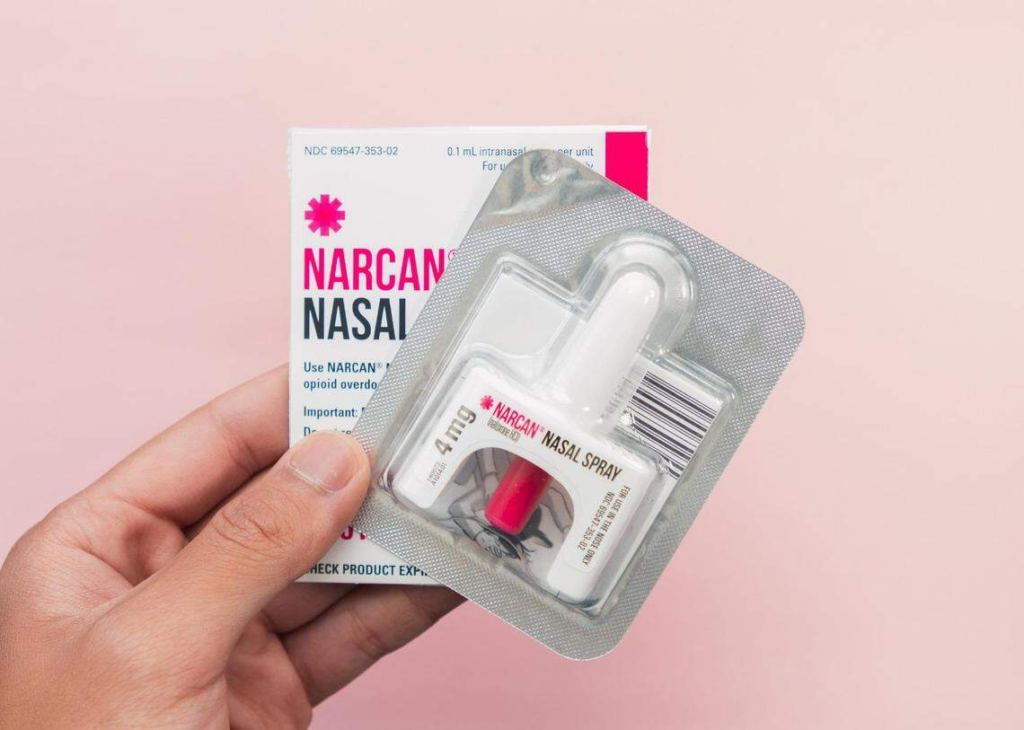Read the original article on the Raleigh News & Observer website (may require subscription).



Fentanyl Victims Network of North Carolina
Stronger Together! Grassroots campaign against illicit fentanyl in NC IRS recognized 501(c)(3) non-profit public charity EIN: 88-3921380
More than 99% of students were not involved in a reportable crime on campus, said Michael Maher, chief accountability officer for the North Carolina Department of Public Instruction. Most schools reported only zero to five criminal offenses at their school last year, he said.
Criminal offenses went down again in North Carolina schools during the 2024-25 school year, with another significant drop in offenses for weapon possession, new data shows.
The North Carolina Department of Public Instruction released the latest public school crime statistics during the State Board of Education meeting on Wednesday.
The drop in criminal offenses reported reflects ongoing trends, but so does a continued rise in offenses for drug possession.
Total offenses dropped from 12,212 the year before to 11,470 offenses last year, according to the North Carolina Department of Public Instruction, which released the data Wednesday afternoon.
Continue reading “More drugs, fewer weapons found in schools, crime data shows”Read the original article on the Raleigh News & Observer website.
One hundred and seventy babies, kids and teens in North Carolina died after fentanyl exposure between 2015 and 2024, new state data shows.
Infants, children younger than 5 and teenagers aged 13 to 17 were the most likely to die after fentanyl exposure here during the past decade, according to updated data from the Office of the Chief Medical Examiner.
The data, focused on fentanyl-positive deaths between 2015 and 2024, was presented by the state Office of the Chief Medical Examiner to a committee of the state Child Fatality Task Force last week.
Fentanyl is extremely dangerous because its residue is easy to ingest, and drug paraphernalia like needles or spoon often contains enough fentanyl to kill a small child. In one toddler death cited by the medical examiner’s office, a 1-year-old was exposed to fentanyl left on a cotton ball next to the bed where the mother and child slept.
“Illicit fentanyl really is one of the substances that is predominantly toxic to the pediatric population,” Sandra Bishop-Freeman, chief toxicologist and forensic laboratory director at the state Office of the Chief Medical Examiner, told the Charlotte Observer.

Among teenagers, accidental ingestion often comes via other drugs — even borrowing what a teen thinks is a Tylenol from a classmate could lead to an overdose from a laced pill. In a case cited by the medical examiner’s office, a 16-year-old who died of fentanyl overdose took what they thought was Xanax at a party.
More 17-year-olds died than any other group among minors between 2015 and 2024, with 52 lives lost. Infants less than 6 months old had the second-highest death toll, with the total reaching 24.
Among racial groups, American Indian and Black residents experienced the highest number of pediatric fentanyl-positive deaths in the state, the data says.
And loss of life overall in North Carolina is much higher than a decade ago — growing from 243 deaths in 2015 to 1,954 in 2024.

There is some good news: Despite the number of fentanyl-related deaths remaining elevated compared to decades past, the rate has begun to slow over the past several years.
Fentanyl deaths among all age groups fell 26% statewide in October 2025 compared to the previous year, with deaths in Mecklenburg County down to 142 from 192.
Overdose deaths have been declining the past two years, CDC data released Wednesday shows. North Carolina’s fentanyl overdose rate among all age groups fell by more than 30% between August 2024 and 2025.
Increased access to preventatives, such as the overdose-reversing nasal spray naloxone, could be helping slow overdose death trends.

A multifaceted prevention strategy has likely helped contributed to the slowdown in overdose deaths in North Carolina, according to Kella Hatcher, executive director of the NC Child Fatality Task Force. Her group has been studying pediatric overdoses for several years.
“You have to keep working on a combination of efforts to make progress, and that’s the case with many [preventable] causes of death,” Hatcher said.
A 2025 Prevention Block Grant funded several primary prevention programs, including youth education efforts that served close to 9,000 during the year. Another program distributed more than 11,000 lock boxes and 15,000 medication disposal kits, according to Tuesday’s presentation.
Opioid settlement dollars are also funding prevention work in many North Carolina counties. The state is receiving $1.4 billion as part of national settlements with opioid companies, money aimed at bringing resources to communities harmed by the opioid epidemic.
The medical examiner’s office will continue to share data with state and county agencies focused on helping curb the preventable childhood deaths, toxicologist Bishop-Freeman said.
“Despite the trends possibly plateauing, these pediatric deaths are still too many,” Bishop-Freeman said.
Read the article and watch the video on the WRAL TV News website.
Raleigh police arrested mother Vinus Humphreys and her boyfriend Tyrone Bannerman on felony child abuse charges after her twin 22-month-old children were exposed to fentanyl inside their apartment.
Raleigh police arrested a mother and her boyfriend for child abuse after they said her twin toddlers were exposed to fentanyl inside their apartment.
Vinus Humphreys, 25, and Tyrone Bannerman, 28, are both facing two counts of felony child abuse. Raleigh police responded after 8 p.m. Monday to a home on Lake Hills Drive to a report of an unresponsive child.
EMS was already on scene providing medical aid to a 22-month-old child when, shortly after, the child’s twin also became unresponsive.
First responders administered Narcan to both children and took them to the hospital for further treatment. Their condition is considered stable and are expected to survive.
Narcan is is a medicine that can help people who are overdosing on an opioid.
Raleigh police found drugs, drug paraphernalia and a firearm inside the home, resulting in more charges for Bannerman, including:
The incident raised concerns for Barb Walsh, the executive director of the Fentanyl Victims Network of North Carolina. The number of children younger than the age of 5 dying from fentanyl is on the rise. According to the North Carolina Office of the Medical Examiner, 29 children younger than 5 year old died from fentanyl between 2017 and 2022, with 72% of those deaths occurring in 2021 and 2022.
“It breaks my heart,” Walsh said. “I hate to use the word overdosing with a two-year-old because they didn’t know what they were taking.”
Walsh lost her 24-year-old daughter in 2021 to an unintentional fentanyl exposure when a toxic amount of it was in a water bottle. It’s why she’s so involved in advocating for change so other families don’t have to experience this pain.
“We’re making progress,” Walsh said. “That’s all we can hope for.”
Earlier this year, Gov. Josh Stein signed a new law creating new criminal offenses for exposing a child to a controlled substance.
Walsh said it goes much further than the laws in place now.
“They get child abuse or child neglect,” Walsh said. “The new law will be a felony even if they ingest it and are OK. That will save someone else’s life.”
Walsh said the new law is a lot more specific compared to the broader charge of child abuse. However, Humphreys and Bannerman won’t be charged under the new law. While Stein signed it into law in July, it won’t become effective until Dec. 1, which is exactly four weeks after Humphreys’ twins were exposed to fentanyl.
“People who endanger a child with a harmful substance like fentanyl should be held accountable for their actions,” Walsh said. “It will lead to lives being saved. That’s the goal. We want lives saved.”
Humphreys and Bannerman are due in court for their first appearances Wednesday afternoon in Wake County. Authorities are holding both of them without bond.

Read the original article on the Raleigh News & Observer website.

A woman has been charged in connection with the fentanyl overdose death of a man she allegedly sold drugs to earlier this year, the Wake County Sheriff’s Office said.
On March 29, deputies responded to a home on Panther Lake Road in the southern part of Wake County for a death investigation and found 39-year-old Matthew Godbold unresponsive, according to a news release. The initial investigation pointed to a possible overdose.
Evidence submitted to the Wake County Bureau of Forensic Services tested positive for fentanyl, the release stated.
Deputies determined Lauren Tasha Olsen, 37, had sold drugs to Godbold that led to his death. She was charged Monday with aggravated death by distribution and with felony sell/deliver a schedule II controlled substance, according to the release.
In 2017, Olsen was convicted of attempted drug trafficking of a schedule I controlled substance, court records show. She was sentenced to between 2 years and 1 month and 3 years and 6 months in jail, with her parole ending in May 2020.
Godbold’s death comes as the number of fentanyl and other overdose deaths in North Carolina has declined.
There were 259 suspected overdose deaths in June 2025 compared to 275 in June 2024, according to the N.C. Office of the Chief Medical Examiner. There was an 8% decrease in such deaths year to date (1,541) compared to January to August 2024 (1,666).
There were 175 fentanyl-positive deaths in April 2025 compared to 204 in April 2024. There was a 28% decrease in such deaths year to date (588) compared to the same time period in 2024 (822), the medical examiner’s office reported.
Read the original article on the WRAL TV5 website.
A woman was arrested Monday and charged with the fatal overdose of a man earlier this year.

A woman was arrested Monday and charged with the fatal overdose of a man earlier this year.
On March 29, the Wake County Sheriff’s deputies responded to a death investigation at a home off Panther Lake Road. They found 39-year-old Matthew Godbold unresponsive inside the home.
Their initial investigation indicated that the cause of death was a possible overdose.
Officials collected and sent evidence to the Wake County Bureau of Forensic Services for testing, which determined that substances found at the scene tested positive for fentanyl.
Deputies determined that 37-year-old Lauren Olsen sold drugs to Godbold that ultimately led to his death. The WCSO did not provide details as to how they connected Olsen to him.
On Monday evening, deputies arrested Olsen and charged her with aggravated death by distribution and felony sell/deliver a Schedule II controlled substance. She is scheduled to appear in court for the first time for this offense Tuesday afternoon.
According to court records, Olsen has a previous arrest history related to possessing drugs and drug paraphernalia from other counties.
Fentanyl is a synthetic opioid. When manufactured by pharmaceutical companies and approved by the FDA, it can be safely used to treat patients in severe pain. The synthetic fentanyl leading to many overdose deaths is made in unregulated labs, pushed by drug cartels, and put in various drugs as a cheap way to produce extremely strong substances.
The fentanyl crisis continues to devastate families across North Carolina, even as overdose deaths decline. Back in late May, Gov. Josh Stein called for a special unit to investigate fentanyl trafficking across the state.
Read the original article on the Raleigh News and Observer website.

A North Carolina man whose distribution of fentanyl contributed to a fatal overdose in a Cary hotel has been sentenced to 16 years in federal prison, the Department of Justice announced Friday.
Keymon Leahke Cofield, 25, of Vance County pleaded guilty in April to distributing fentanyl and heroin, along with possession with intent to distribute. The investigation that led to his arrest began on June 13, 2020, when Cary police responding to a suspected overdose at a local hotel found a 35-year-old man dead with 50 bindles of suspected fentanyl and heroin, the U.S. District Court for the Eastern District of North Carolina said.
Officials traced the fentanyl, a synthetic opioid, to Cofield, who was 20 at the time. They determined he had traveled south from the small city of Henderson to Cary to sell drugs. An undercover investigation that summer culminated in Cofield’s arrest. Authorities seized 651 bindles of suspected fentanyl and heroin, and a search of Cofield’s phone showed photos of firearms and large amounts of cash.
The Department of Justice listed Cofield’s nicknames as “Keymoney” and “Boi Fat.”
Cary and North Carolina overall have seen increases in opioid incidents this century. Statewide, opioid overdose fatalities rose 800% between 1999 and 2016 — from around 100 deaths to 1,300. Cary reported 11 on-the-scene opioid overdose deaths in 2017 and the same number in 2020, the year of Cofield’s arrest. In 2018, Cary launched an Opioid Wastewater Project pilot program that sought to measure opioid consumption not by overdoses but by the concentration of opioids in sewage samples. Ten locations around the town of 170,000 were selected.
Town officials sought a new gauge for opioid use after observing deliveries of Narcan — a medication that can reverse the impacts of opioid overdoses — exceeded actual reports of overdoses.
In 2022, Cary reported 118 opioid-related incidents, a higher total than in any of the previous five years. That year, Cary received $928,360 from the North Carolina Department of Justice as part of national settlement agreements with opioid companies.
Read the original article on the Raleigh News & Observer website.
Welcome to the Sunday edition of our Under the Dome newsletter, which focuses on the governor. I’m Avi Bajpai, filling in for Dawn Vaughan this week.

The budget proposal Gov. Josh Stein unveiled last month renews his request, now for the third year in a row, for a special unit of state prosecutors and law enforcement agents focused on combating fentanyl trafficking.
Stein first called on the General Assembly to create a fentanyl control unit within the N.C. Department of Justice in February 2023. As head of the department in his role as attorney general at the time, Stein said there was a need for additional prosecutors dedicated to helping local district attorneys go after large-scale trafficking, wiretap, and overdose cases.
His first recommended budget as governor this year includes a funding request for a fentanyl control unit with attorney positions at the DOJ, and law enforcement positions at the State Bureau of Investigation.
Asked about the proposal this week, Stein told reporters that even though initial data appeared to show a downturn in overdose deaths in North Carolina last year, it remains a priority for the state to “dedicate resources to getting this poison out of our communities to the fullest extent possible.”
Continue reading “Stein wants ‘fentanyl control unit’ of prosecutors and drug agents. How it would work.”Wayne County sheriff’s deputy Michael Kenneth Cox received a six-year, two-month prison sentence for his role in a drug trafficking conspiracy and a mail and wire fraud conspiracy.
A Wayne County sheriff’s deputy received a six-year, two-month sentence for his role in a drug trafficking conspiracy and a mail and wire fraud conspiracy, the U.S. Department of Justice announced Wednesday.
Michael Kenneth Cox, 49, will also have three years of supervised release after the sentence.
“We discovered Cox’s criminal activity as part of a much larger, multi-year investigation into dozens of drug traffickers across eastern North Carolina known as Operation Polar Bear,” said U.S. Attorney for the Eastern District of North Carolina Michael Easley Jr.
Citing court documents and other information presented in court, the Justice Department said Cox helped two drug traffickers evade chargers while he was a Wayne County deputy.
Continue reading “Wayne County deputy sentenced to six-plus years for drug trafficking and fraud conspiracies”